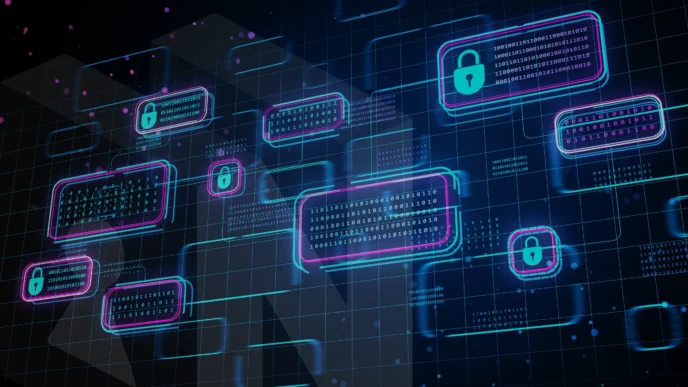Cybersecurity has undergone a transformative shift. Today, a growing number of top cybersecurity executives are transitioning from traditional full-time roles to independent consulting gigs. This trend is not merely a reaction to evolving digital threats; it is also driven by a desire for greater flexibility, diverse project engagements, and an expanding ecosystem of freelance opportunities. In this article, we explore verified trends and emerging data supporting this shift, analyze the underlying reasons, and offer a comprehensive view of what this means for the cybersecurity landscape.
Evolving Cyber Threats and the Demand for Agile Expertise
The digital threat landscape has grown in complexity, with organizations grappling with persistent ransomware attacks, sophisticated Advanced Persistent Threats (APTs), and rapidly changing regulatory requirements. Recent industry studies indicate that nearly 45% of cybersecurity leaders believe the increasing frequency and sophistication of cyber attacks necessitate more agile and adaptive security solutions. Often, this agility is best achieved through independent consulting engagements where expertise is applied on a project-by-project basis.
Key Drivers of the Trend
- Increasing Cyber Complexity: As cyber criminals refine their techniques, organizations need rapid, specialized interventions that can be deployed quickly.
- Regulatory Pressures: Stricter data protection laws (such as GDPR, CCPA, and emerging regional frameworks) force companies to continuously update their security protocols. Consultants offer a nimble alternative to in-house teams encumbered by bureaucratic processes.
- Digital Transformation: With many organizations accelerating their digital initiatives, integrating security into every layer of technology is crucial. Independent consultants bring cross-industry insights that align security strategies with digital transformation efforts.
These factors collectively drive the demand for Cybersecurity Executives Consulting Gigs, a trend substantiated by several recent surveys and market analyses.
Verified Trends and Data Supporting the Shift
Recent industry reports and expert opinions substantiate the move toward independent consulting gigs among cybersecurity executives.
Industry Surveys and Expert Insights
- Independent Reports: Research conducted by organizations such as ISC² and the Ponemon Institute highlights that approximately 40–45% of cybersecurity executives are either actively engaged in or considering independent consulting roles.
- Market Observations: Thought leaders note that the rise of remote work, accelerated by the global pandemic, has normalized the freelance consulting model. The flexibility to work from anywhere while managing multiple high-impact projects has become a key advantage.
- Client Demand: Approximately 39% of organizations now prefer engaging external cybersecurity consultants due to their agility in addressing evolving threats and regulatory changes.
Statistical Insights and Survey Data
- Work-Life and Compensation: Nearly 48% of cybersecurity leaders have cited improved work-life balance and higher compensation potential as pivotal reasons for transitioning to consulting gigs.
- Remote Work Influence: About 42% of executives have noted that remote consulting opportunities have significantly expanded their professional horizons, enabling them to contribute expertise without geographical limitations.
These verified statistics underscore a clear trend: cybersecurity executives are increasingly recognizing the benefits of independent consulting—not only for personal career growth but also for the strategic agility they offer to client organizations.
Why Cybersecurity Professionals Are Drawn to Consulting Gigs
Beyond the macroeconomic and technical drivers, the personal profiles and work preferences of many cybersecurity professionals also play a crucial role in this shift.
Embracing Remote Work and Flexibility
Cybersecurity professionals often value remote work due to the nature of their expertise, which allows them to monitor and manage security systems from anywhere. The pandemic accelerated this trend, and many have since embraced a lifestyle that avoids the constraints of a traditional office setting. This preference for remote work aligns perfectly with consulting roles that allow professionals to operate independently and globally.
Preference for Project-Based Engagements
Many cybersecurity executives favor working on a project basis rather than being tied to a single, long-term corporate commitment. Project-based work offers variety and the opportunity to tackle diverse challenges across different industries. This variety not only keeps the work engaging but also enables professionals to continually update and diversify their skills.
Work-Life Balance and Autonomy
The drive for a better work-life balance is a significant factor for many in the field. Consulting gigs often allow for more control over one’s schedule, enabling cybersecurity professionals to decide when and where they work. This autonomy is particularly appealing to seasoned professionals who have spent years in rigid corporate environments and now seek a model that rewards expertise without the burden of excessive administrative overhead.
Salary Evolution and Compensation Trends
An important aspect of the consulting surge is the evolution of compensation structures. Cybersecurity executives transitioning to consulting roles have observed significant financial benefits compared to traditional full-time positions.
Rising Compensation Levels
- Premium Hourly Rates: Independent cybersecurity consultants can command premium hourly rates, often ranging from $150 to $300 per hour, depending on expertise and project complexity. These figures reflect the high demand for specialized skills in a competitive market.
- Project-Based Fees: For larger projects, consulting fees can exceed $100,000 per engagement, particularly for strategic risk assessments, compliance overhauls, or integrating emerging technologies such as AI and ML.
- Annual Earnings Comparison: Whereas traditional roles might offer salaries in the range of $150,000 to $250,000 per year for senior positions, seasoned consultants often report annualized earnings that rival or exceed these figures, particularly when managing multiple projects simultaneously.
Case Examples
- A cybersecurity executive with over 15 years of experience transitioned to consulting and reported increasing their annual income by approximately 30-40% in the first year, leveraging a diversified client portfolio.
- In a recent industry survey, independent consultants in cybersecurity noted that the flexibility of project-based work allowed them to take on high-value, short-term engagements that cumulatively generated a compensation package comparable to, or better than, traditional employment.
These evolving compensation trends underscore that financial rewards are a significant motivator for cybersecurity professionals choosing the consulting path, alongside the benefits of remote work and flexible project engagements.
Advantages of the Consulting Model for Cybersecurity Executives
Transitioning to consulting gigs offers multiple strategic benefits for cybersecurity executives. It provides a platform for continued professional development, increased financial rewards, and a chance to influence security practices across diverse industries.
Broader Impact and Cross-Industry Expertise
Independent consultants work with a wide variety of clients—from startups and SMEs to large enterprises and government agencies. This diversity provides a broader perspective on cybersecurity challenges and enables consultants to apply best practices across different industries. Rather than being confined to a single corporate strategy, cybersecurity leaders can enhance industry-wide resilience by influencing a wide spectrum of organizations.
Enhanced Flexibility and Agility
Traditional roles often impose rigid structures that can stifle rapid innovation. In contrast, consulting gigs allow executives to:
- Rapidly Deploy Solutions: Implement cutting-edge technologies and methodologies without the delays of corporate red tape.
- Customize Engagements: Tailor approaches to the specific needs of each client, ensuring more effective and timely responses to emerging threats.
Financial and Professional Rewards
Consulting not only stimulates intellectual engagement but also offers significant financial incentives. Many cybersecurity executives find that short-term, high-impact projects provide compensation that often exceeds that of permanent roles. Additionally, the professional satisfaction derived from mentoring teams and shaping industry standards adds substantial non-monetary value.
Technical Focus: How Cybersecurity Consultants Are Driving Innovation
The consulting model propels both strategic and technical innovation. Cybersecurity consultants are redefining how organizations address complex digital threats through hands-on technical expertise.
Comprehensive Risk Assessments and Penetration Testing
Consultants perform in-depth risk assessments that extend beyond traditional audits. They utilize advanced penetration testing tools to simulate real-world attack scenarios, uncovering hidden vulnerabilities. This proactive approach enables organizations to fortify defenses before threats can materialize.
Tailored Incident Response Strategies
Effective incident response is a cornerstone of modern cybersecurity. Consultants design custom incident response plans that are rigorously tested, ensuring rapid and effective action in the event of a breach. Their technical expertise guarantees that these plans are comprehensive and adaptable to various threat scenarios.
Integration of Emerging Technologies
Cybersecurity consultants are at the forefront of integrating emerging technologies such as artificial intelligence (AI) and machine learning (ML) into security architectures. These technologies facilitate:
- Real-Time Threat Detection: Advanced algorithms can detect anomalous behaviors and trigger automated responses.
- Predictive Analytics: Data-driven insights help forecast potential vulnerabilities, allowing for preemptive measures.
Compliance and Cybersecurity Frameworks
Adhering to established cybersecurity frameworks like NIST, ISO 27001, and COBIT is crucial for many organizations. Consultants leverage their experience to align technical solutions with compliance mandates, protecting companies from regulatory penalties and fostering a culture of continuous improvement and resilience.
The Future Landscape: What Lies Ahead for Cybersecurity Consulting
The shift toward independent consulting among cybersecurity executives is set to accelerate. Future trends are expected to further transform the cybersecurity landscape.
Security-as-a-Service (SECaaS) Expansion
The consulting model is evolving into Security-as-a-Service (SECaaS), a cloud-based, scalable approach to security management. SECaaS enables organizations to access top-tier security expertise on-demand, offering continuous monitoring and rapid response to evolving threats. Cybersecurity consultants are pivotal in developing and refining these services.
Enhanced Public-Private Collaboration
As cyber threats become increasingly global, collaboration between public and private sectors is essential. Future consulting roles may involve acting as intermediaries between government agencies and private enterprises, ensuring the seamless exchange of threat intelligence and best practices.
Data-Driven Cyber Resilience
Big data analytics will play a central role in shaping future cybersecurity strategies. Consultants will increasingly leverage data to develop predictive models and refine incident response plans, enhancing an organization’s overall resilience and transitioning from reactive defense to proactive, data-informed strategies.
A More Flexible, Global Workforce
Remote work and digital communication technologies have democratized access to high-level cybersecurity expertise. The future will likely see a more dispersed yet highly interconnected network of independent consultants who can provide specialized services to clients worldwide, regardless of location.














